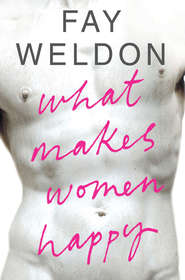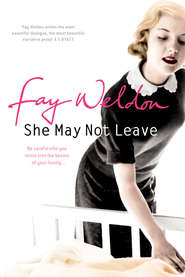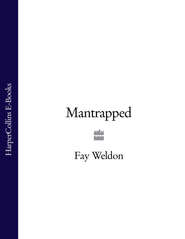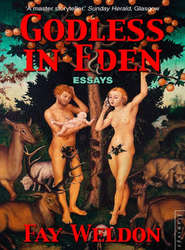По всем вопросам обращайтесь на: info@litportal.ru
(©) 2003-2024.
✖
Puffball
Автор
Год написания книги
2018
Настройки чтения
Размер шрифта
Высота строк
Поля
‘Of course he does,’ said Liffey stoutly. ‘I know accidents can happen. People get drunk and don’t know what they’re doing. But he’d never be unfaithful; not properly unfaithful. And nor would I, ever, ever, ever.’
Mabs spent a busy morning. She went up to her mother and begged a small jar of oil of mistletoe and a few drops of the special potion, the ingredients of which her mother would never disclose, and went home and baked some scones, and took them up to Liffey as a neighbourly gesture and when Tucker came home to his midday meal told him to get up to Liffey as soon as possible.
‘What for?’ asked Tucker.
‘You know what for,’ said Mabs. She was grim and excited all at once. Liffey was to be proved a slut, like any other. Tucker was to do it, and at Mabs’ behest, rather than on his own initiative, sometime later.
‘You know you don’t really want me to,’ said Tucker, alarmed, but excited too.
‘I don’t want her going back to London and leaving that cottage empty for Dick Hubbard to sell,’ said Mabs, searching for reasons. ‘And I want her side of the field for grazing, and I want her taken down a peg or two, so you get up there, Tucker.’
‘Supposing she makes trouble,’ said Tucker. ‘Supposing she’s difficult.’
‘She won’t be,’ said Mabs, ‘but if she is bring her down for a cup of coffee so we all get to know each other better.’
‘You won’t put anything in her coffee,’ said Tucker, suspiciously. ‘I’m a good enough man without, aren’t I?’ Mabs looked him up and down. He was small but he was wiry; the muscles stood out on his wrists: his mouth was sensuous and his nostrils flared.
‘You’re good enough without,’ she said. But in Mabs’ world men were managed, not relied upon, and were seldom told more than partial truths. And women were to be controlled, especially young women who might cause trouble, living on the borders of the land, and a channel made through them, the better to do it. Tucker, her implement, would make the channel.
‘I’ll go this evening,’ he said, delaying for no more reason than that he was busy hedging in the afternoon, and although he was annoyed, he stuck to it.
Liffey ate Mabs’ scones for lunch. They were very heavy, and gave her indigestion.
A little black cat wandered into the kitchen, during the afternoon. Liffey knew she was female. She rubbed her back against Liffey’s leg, and meowed, and looked subjugated, tender and grateful all at once. She rolled over on her back and yowled. She wanted a mate. Liffey had no doubt of it: she recognised something of herself in the cat, which was hardly more than a kitten and too young to safely have kittens of her own. Liffey gave her milk and tinned salmon. During the afternoon the cat sat in the garden and toms gathered in the bushes and set up their yearning yowls, and Liffey felt so involved and embarrassed that she went and lay down on her mattress on the floor, which was the only bed she had, and her own breath came in short, quick gasps, and she stretched her arms and knew she wanted something, someone, and assumed it was Richard, the only lover she had ever had, or ever—until that moment—hoped to have. Gradually the excitement, if that was what it was, died. The little cat came in; she seemed in pain. She complained, she rolled about, she seemed talkative and pleased with herself.
Farmyards, thought Liffey. Surely human beings are more than farmyard animals? Don’t we have poetry, and paintings, and great civilisations and history? Or is it only men who have these things? Not women. She felt, for the first time in her life, at the mercy of her body.
Richard, four hours late at the office, had to fit his morning’s work into the afternoon, remake appointments, and rearrange meetings. It became obvious that he would have to work late. His anger with Liffey was extreme: he felt no remorse for having hit her. Wherever he looked, whatever he remembered, he found justification for himself in her bad behaviour. Old injuries, old traumas, made themselves disturbingly felt. At fifteen, he had struck his father for upsetting his mother: he felt again the same sense of rage, churned up with love, and the undercurrent of sadistic power, and the terrible knowledge of victory won. And once his mother had sent off the wrong forms at the wrong time and Richard had failed as a result to get a university place. Or so he chose to think, blaming his mother for not making his path through life smooth, recognising the hostility behind the deed, as now he blamed Liffey, recognising her antagonism towards his work. It was as if during the angry drive to the office a trapdoor had opened up, which hitherto had divided his conscious, kindly, careful self from the tumult, anger and confusion below, and the silt and sludge now surged up to overwhelm him. He asked Miss Martin to send a telegram to Liffey saying he would not be home that night.
Miss Martin raised her eyes to his for the first time. They were calm, shrewd, gentle eyes. Miss Martin would never have misread a train timetable.
‘Oh Mr Lee-Fox,’ said Miss Martin. ‘You have got yourself into a pickle!’
Farmyards (#ulink_36f06f55-cde7-5f35-854e-a038f1d2f5ab)
Mabs’ children came home on the school bus. Other children wore orange armbands, provided by the school in the interests of road safety. But not Mabs’ children. ‘I’m not sewing those things on. If they’re daft enough to get run over they’re better dead. Isn’t that so, Tucker?’
Today the children carried a telegram for Liffey. Mrs Harris, who ran the sub post-office in Crossley had asked them to take it up to Honeycomb Cottage. They gave it instead to Mabs, who steamed the enevelope open, and read the contents, more for confirmation than information, for Mrs Harris had told the children, who told Mabs, that Richard would not be coming home that night. He was staying with Bella, instead.
Bella? Who was Bella? Sister, mistress, friend?
Tucker consented to take the telegram up to Liffey. No sooner had he gone than Mabs began to wish he had stayed. She became irritable, and gave the children a hard time along with their tea. She chivvied Audrey into burning the bacon, slapped Eddie for picking up the burnt bits with his fingers, made Kevin eat the half-cooked fatty bits so that he was sick, and then made Debbie and Tracy wipe Kevin’s sick up. But it was done: they were fed. All were already having trouble with their digestions, and would for the rest of their lives.
When Mabs was pregnant she was kinder and slower, but Kevin, the youngest, was four, and had never known her at her best. He was the most depressed, but least confused.
Liffey, wearing rubber gloves and dark glasses as well as four woollies, opened the door to Tucker. She knew from his demeanour that he had not come to deliver telegrams, or to mend fuses (although he did this for her, later) but to bed her if he could. The possibility that he might, the intention that he should, hung in the air between them. He did not touch her, yet the glands on either side of her vaginal entrance responded to sexual stimulation—as such glands do, without so much as a touch or a caress being needed—by a dramatic increase in their secretions.
Like the little black cat on heat, thought Liffey. Horrible! She made no connection between her response and Mabs’ scones, with their dose of mistletoe and something else. How could she?
I am not a nice girl at all, thought Liffey. No. All that is required of me is the time, the place, and the opportunity: a willing stranger at the door unlikely to reproach me; and dreams of fidelity and notions of virtue and prospects of permanence fly out the window as he steps in the door.
Love is the packet, thought Liffey, that lust is sent in, and the ribbons are quickly untied.
If I step back, thought Liffey, this man will step in after me and that will be that.
Come in, come in, Liffey’s whole body sang, but a voice from Madge answered back, ‘Wanting is not doing, Liffey. Almost nothing you can’t do without.’
Liffey did not step back. She did not smile at Tucker. But her breath came rapidly.
Tucker introduced himself. Farmer, Neighbour. Mabs’ husband. Owner of the field where the black and white cows grazed. Kicker of puffballs. Liffey remembered him now, by his steel-capped boots. She remained formal, and friendly. But Tucker knew, and knew that she knew, what there could be, was to be, between them.
Tucker handed over the telegram.
‘My husband can’t get back this evening,’ said Liffey, brightly and briskly, reading it. She knew better than to betray emotion at such a time. But she minded very much.
A fighter plane zoomed over the Tor, startling both, and was gone. Tucker Pierce smiled at Liffey. Liffey’s eyelids drooped as other parts of her contracted, in automatic beat. Oh, little black cat, squirming over the cool ground, the better to put out the fire within! Tucker moved closer. Liffey stood her ground, chanting an inner incantation, of nonsense and aspiration mixed. Richard, I love you, Richard, I am spirit, not animal: Tucker, in the name of love, in the name of God, in the name of Richard, flawed and imperfect as he is; Tucker, stay where you are.
Tucker stayed; Tucker talked, still on the step.
‘Come the spring,’ said Tucker, ‘you’ll be wanting our cows in your field. Keep the grass and the thistles down.’ ‘Not to mention the docks,’ said Tucker. ‘Docks can be a terrible nuisance.’
‘Don’t thank me,’ said Tucker. ‘We’re neighbours, after all.’
‘Any little bits and pieces you need doing,’ said Tucker. ‘Just ask.’
‘Looks cosy in there,’ said Tucker, peering over Liffey’s shoulder into the colourful warmth within. ‘I see you’ve a way with rooms: making them look nice, feminine like.’
And indeed Liffey had: tacking up a piece of fabric here, a bunch of dried flowers there. She adorned rooms as she hesitated to adorn herself. She loved silks and velvets and rich embroideries and plump cushions and old, faded colours.
Tucker looked longingly within. Liffey stood her ground. ‘Come on down to the farm,’ said Tucker, remembering Mabs’ instructions, ‘and have a cup of coffee with Mabs.’ ‘Mabs is always glad of company,’ lied Tucker. ‘One thing to be on your own when you expect it,’ observed Tucker, with truth. ‘Quite another when you don’t. You’ll be feeling lonely, I dare say.’
‘Not really,’ said Liffey, with as much conviction as she could muster. ‘But I’d be glad to use your telephone, if I could.’
They walked down together, along the rutted track. Tucker Pierce, farmer, married, father of five, muddy-booted, dirty-handed, coarse-featured, but smiling, confident and easy, secure in his rights and expectations. And little Liffey, feeling vulnerable and flimsy, a pawn on someone else’s chessboard, not the Queen. She saw herself through Tucker’s eyes. She saw that her frayed jeans could represent poverty as well as universal brotherhood, and skinniness malnutrition, rather than the calculated reward of a high protein, low calorie diet.
Liffey had to run to keep up with Tucker. Her country shoes, so absurdly stout in London, appeared flimsy here, while his clumsy boots moved easily over the hollows and chasms of the rutted path.
‘It’s quiet up here,’ said Tucker, turning to her.
Not here, she thought, not here in the open, like an animal: and then, not here, not anywhere, never!
Liffey rang Richard’s office from the cold hall of Cadbury Farm. Miss Martin said Richard was not available, having gone to a meeting at an outside advertising agency, and she did not expect him back.
‘Didn’t he leave a message?’
‘No.’
Liffey rang Bella and the au pair girl Helga answered.











